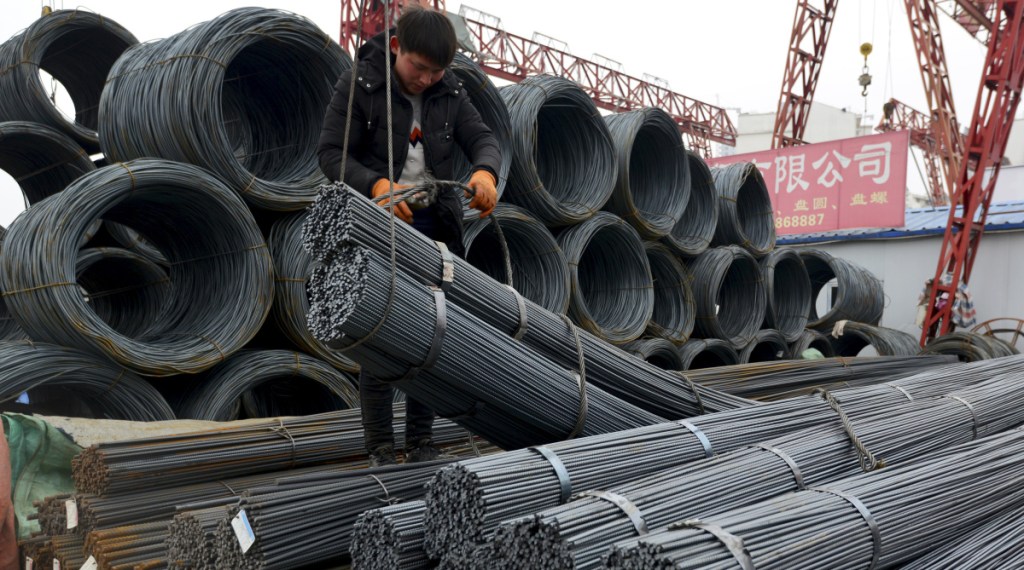President Trump on Saturday threatened to hammer European automotive companies with steep tariffs as his global trade war snowballed into a third day.
Trump, in a series of Twitter posts while at his Mar-a-Lago resort in Florida, appeared to be responding to warnings from European leaders that his promised tariffs on aluminum and steel would trigger retaliation from numerous major U.S. trading partners.
Bring it on, Trump wrote.
“If the E.U. wants to further increase their already massive tariffs and barriers on U.S. companies doing business there, we will simply apply a Tax on their Cars which freely pour into the U.S. They make it impossible for our cars (and more) to sell there. Big trade imbalance!” Trump tweeted Saturday.
The U.S. imposes a 2.5 percent tariff on the import of foreign cars and a 25 percent tariff on the import of foreign trucks and commercial vans. The European Union charges a 10 percent tariff on the import of cars.
On Thursday, Trump shocked the world – and many of his top advisers – with an off-the-cuff announcement that the United States would impose a tariff of 25 percent on steel imports and 10 percent on aluminum imports.
Canada’s leadership said they would retaliate with tariffs on U.S. exports.
European Commission president Jean-Claude Juncker said his bloc planned to hit back at the U.S. by imposing tariffs on targeting Kentucky bourbon, Harley-Davidson motorcycles, and Levi’s blue jeans.
On Friday, Trump wrote in another Twitter post that “trade wars are good, and easy to win.” He also promised to enact what he called “RECIPROCAL TAXES” on any country that has a tariff against any U.S. good or service.
Trump’s message Saturday continued to levy direct attacks at U.S. allies and some of the world’s largest economies. The tariffs on aluminum and steel and large tariffs on European automakers would have the biggest impact on Canada, the United Kingdom, Germany, South Korea, Turkey, and Japan, countries which the U.S. has close national security ties.
During the 2016 campaign, Trump often said he planned to use the White House to focus squarely on what he viewed as trade imbalances caused by China and Mexico, but the moves he’s threatened in the past week would likely have little impact on them. China has dramatically ramped up production of aluminum and steel in the past 20 years, leading to a glut of both metals that have hurt U.S. companies. But they don’t account for a large share of U.S. imports in these metals, making it more difficult for the White House to impose direct penalties. Instead, the largest exporters of steel to the U.S. are Canada, Germany, South Korea and other top allies.
On Friday, Canadian Prime Minister Justin Trudeau called the tariff proposal “absolutely unacceptable,” using the same phrase as Foreign Minister Chrystia Freeland, who also threatened retaliatory measures if Canada isn’t exempted from the trade actions.
Trump’s new attack on European automakers is mostly a direct threat at Germany, which exported $23 billion in cars to the United States in 2016, according to data aggregated by the Massachusetts Institute of Technology. But large German automakers also have a sizable presence in the United States, with BMW employing thousands of workers in South Carolina and Volkswagen employing thousands more in Tennessee. Those manufacturers produce hundreds of thousands of cars in the United States each year, many of which are later exported to buyers in Asia and Europe.
Critics say tariffs only drive up costs for domestic consumers.
Send questions/comments to the editors.



Success. Please wait for the page to reload. If the page does not reload within 5 seconds, please refresh the page.
Enter your email and password to access comments.
Hi, to comment on stories you must . This profile is in addition to your subscription and website login.
Already have a commenting profile? .
Invalid username/password.
Please check your email to confirm and complete your registration.
Only subscribers are eligible to post comments. Please subscribe or login first for digital access. Here’s why.
Use the form below to reset your password. When you've submitted your account email, we will send an email with a reset code.